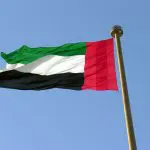Pakistan will dedicate 2,000 megawatts of electricity to Bitcoin mining and artificial intelligence (AI) data centers. The move comes as the country struggles to avoid economic collapse while owing billions to international lenders.
Finance Minister Muhammad Aurangzeb said Sunday the plan could attract massive foreign investment. The government hopes Bitcoin mining will generate jobs and revenue from Pakistan’s unused power plants.
“Pakistan is uniquely positioned — geographically and economically — to become a global hub for data centres. As a digital bridge between Asia, Europe, and the Middle East, Pakistan offers the most strategic location in the world for data flow and digital infrastructure,” the ministry stated.
The plan aims to address Pakistan’s electricity issues. High power costs have driven many consumers to install solar panels, resulting in the country having significant unused power generation capacity. Three coal power plants currently running at just 15% capacity will be converted for crypto mining at Sahiwal, China Hub, and Port Qasim.
Bitcoin mining researcher Daniel Batten estimates Pakistan could produce 17,000 Bitcoins annually if half the allocated power goes to mining. At current prices, that equals over $1.8 billion in value.
The announcement follows Pakistan’s recent decision to legalize cryptocurrency. In March, officials created the Pakistan Crypto Council (PCC) under the Finance Ministry to regulate digital assets.
Pakistan ranks ninth globally in crypto adoption, according to research firm Chainalysis. The country has over 27 million crypto users among its 247 million population.
The timing creates tension with Pakistan’s international creditors. The country recently secured a $2.1 billion loan package from the International Monetary Fund (IMF) to prevent economic default. The IMF has repeatedly warned against government involvement in Bitcoin, arguing crypto mining poses financial risks for countries with debt problems.
Other nations with IMF loans have pursued similar Bitcoin strategies. El Salvador continues expanding its Bitcoin reserves despite IMF pressure. The Central American country now holds over 6,000 Bitcoins worth $678 million.
Pakistan’s crypto push includes high-profile partnerships. Binance co-founder Changpeng Zhao serves as an advisor to the Pakistan Crypto Council. Officials also signed agreements with World Liberty Financial, a crypto project backed by Donald Trump associates.
Bilal Bin Saqib, CEO of the Pakistan Crypto Council, called the initiative a “turning point” for Pakistan’s digital economy.
The country recently established the Pakistan Digital Assets Authority to regulate crypto exchanges and digital wallets. This new agency will also handle tokenizing government assets and debt.
Officials promise tax holidays and duty exemptions for companies that invest in Bitcoin mining equipment. These incentives aim to attract international mining operations to Pakistan.
The initiative represents the first phase of a larger digital transformation strategy. Future phases will incorporate renewable energy sources, including solar, wind, and hydropower.
Success depends on attracting foreign investment while managing relationships with international lenders who oppose crypto adoption.























